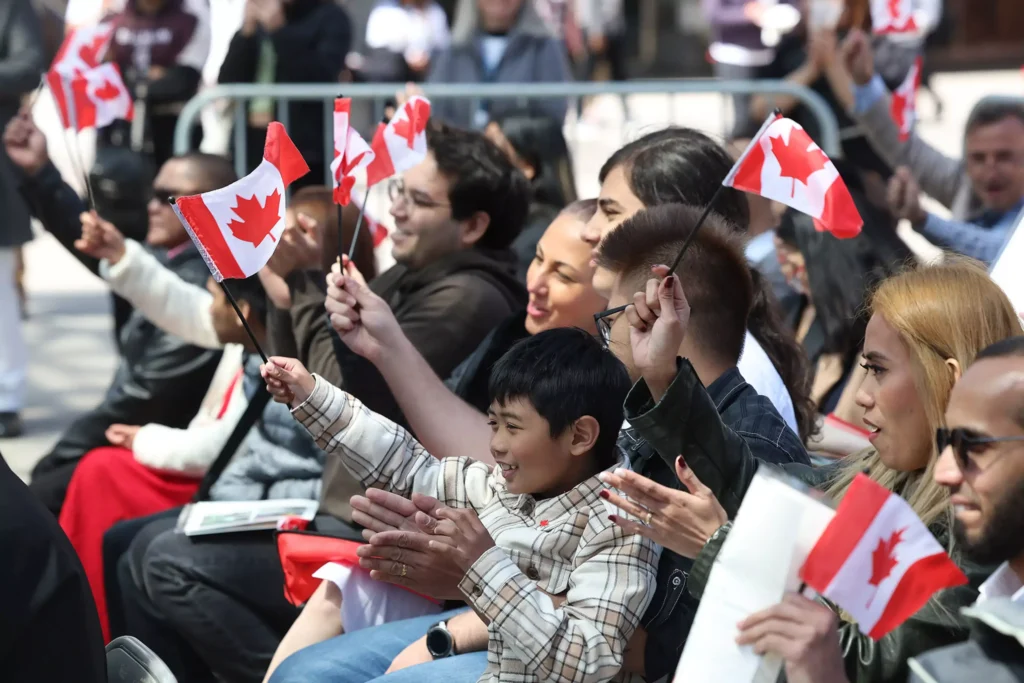Understand Refugee Claims in Canada
According to the Canadian government, you are considered a refugee if you are not safe in your own country. If returning to your home country puts you at risk of harm or loss of freedom due to your identity or beliefs, you need to live elsewhere.
Making a Refugee Claim in Canada
Requesting refugee protection in Canada is called making a refugee claim. Simply facing danger or mistreatment in your country does not automatically qualify you to stay in Canada. You must demonstrate that you are either a Convention Refugee or a Person in Need of Protection.
Convention Refugee
Immigration and Refugee Protection Act, s. 96 – meaning of “Convention refugee”
- A Convention refugee is a person who by reason of a well-founded fear of persecution for reasons of race, religion, nationality, membership in a particular social group or political opinion,
(a) is outside each of their countries of nationality and is unable or, by reason of that fear, is unwilling to avail themselves of the protection of each of those countries, or
(b) not having a country of nationality, is outside their country of former habitual residence and is unable or, by reason of that fear, unwilling to return to that country.
Person In Need of Protection
97 (1) A person in need of protection is a person in Canada whose removal to their country or countries of nationality or, if they do not have a country of nationality, their country of former habitual residence, would subject them personally
- to a danger, believed on substantial grounds to exist, of torture within the meaning of Article 1 of the Convention Against Torture; or
- to a risk to their life or to a risk of cruel and unusual treatment or punishment if
- (i) the person is unable or, because of that risk, unwilling to avail themselves of the protection of that country,
- (ii) the risk would be faced by the person in every part of that country and is not faced generally by other individuals in or from that country,
- (iii) the risk is not inherent or incidental to lawful sanctions, unless imposed in disregard of accepted international standards, and
- (iv) the risk is not caused by the inability of that country to provide adequate health or medical care.
- Eligibility to Make a Refugee Claim
The Canadian government will decide if you can make a refugee claim. It’s important to understand the criteria and seek legal advice before applying.
- Who is Not Eligible: You might be ineligible to make a refugee claim in Canada if:
- the claimant has ever before made a refugee claim in Canada;
- the claimant has been recognized as a refugee in another country and can be returned to that country;
- the claimant came to Canada through a designated “safe third country”;
- the claimant has been determined to be inadmissible on the basis of security, serious criminality, organized criminality, or violating human or international rights.
Note: Canada has signed an agreement with the United States designating the U.S. as a “safe third country”. Claimants coming from, or even just passing through the U.S., are ineligible to make refugee claims at a Canadian border crossing by land. They will be turned back to the U.S.
The Safe Third Country Agreement (STCA)
The Safe Third Country Agreement applies to refugee claimants who are seeking entry to Canada from the U.S.:
- at Canada-U.S. land border crossings
- after crossing between ports of entry and making a claim for refugee protection less than 14 days after the day of entry into Canada
- by train, or
- at airports, only if the person seeking refugee protection in Canada has been refused refugee status in the US and is in transit through Canada after being deported from the US.
Exceptions to the Agreement
- Family member exceptions
- Unaccompanied minors exception
- Document holder exceptions
- Public interest exceptions
Family member exceptions
Refugee claimants may qualify under this category of exceptions if they have a family member who:
- is a Canadian citizen
- is a permanent resident of Canada
- is a protected person under Canadian immigration legislation
- has made a claim for refugee status in Canada that has been accepted by the Immigration and Refugee Board of Canada (IRB)
- has had his or her removal order stayed on humanitarian and compassionate grounds
- holds a valid Canadian work permit
- holds a valid Canadian study permit, or
- is over 18 years old and has a claim for refugee protection that has been referred to the IRB for determination. (This claim must not have been withdrawn by the family member, declared abandoned or rejected by the IRB or found ineligible for referral to the IRB.)
Unaccompanied minors exception
Refugee claimants may qualify under this category of exceptions if they are minors (under the age of 18) who:
- are not accompanied by their mother, father or legal guardian
- have neither a spouse nor a common-law partner, and
- do not have a mother, a father or a legal guardian in Canada or the United States.

Document holder exceptions
Refugee claimants may qualify under this category of exceptions if they:
- hold a valid Canadian visa (other than a transit visa)
- hold a valid work permit
- hold a valid study permit
- hold a travel document (for permanent residents or refugees) or other valid admission document issued by Canada, or
- are not required (exempt) to get a temporary resident visa to enter Canada but require a U.S.–issued visa to enter the U.S.
Public interest exceptions
Refugee claimants may qualify under this category of exceptions if:
- they have been charged with or convicted of an offence that could subject them to the death penalty in the U.S. or in a third country. However, a refugee claimant is ineligible if he or she has been found inadmissible in Canada on the grounds of security, for violating human or international rights, or for serious criminality, or if the Minister finds the person to be a danger to the public.
.
Overview of the Refugee Claim Process
To remain in Canada, you must prove to the government that you qualify as a refugee and that your claims are truthful. This requires gathering evidence and clearly and honestly presenting your situation.
Starting Your Refugee Claim
Begin by informing the Canadian government of your need for protection. You must be in Canada and can:
- Submit your application online
- Inform a CBSA officer at a border, airport, or detention Centre that you wish to make a refugee claim.
CBSA or IRCC will determine if you can make a refugee claim. If permitted, your claim is sent to the IRB-RPD.
Your Refugee Claim Hearing
You will have a videoconference hearing where you must prove you are a Convention Refugee or a Person in Need of Protection. If you have status in multiple countries, you must show you are at risk in each one. An IRB-RPD Member will listen to your testimony, witness statements, and review all submitted documents.
After Your Hearing
Post-hearing, the IRB-RPD will inform you if your claim is accepted. If accepted, you can apply for permanent residency. If rejected, you might have the option to appeal the decision.



